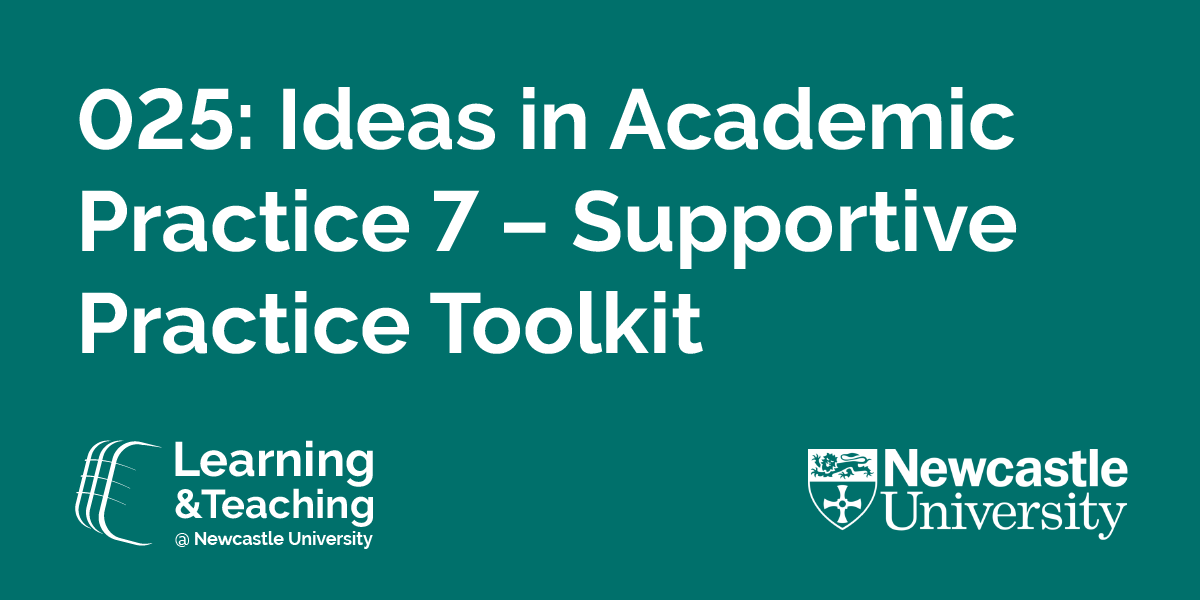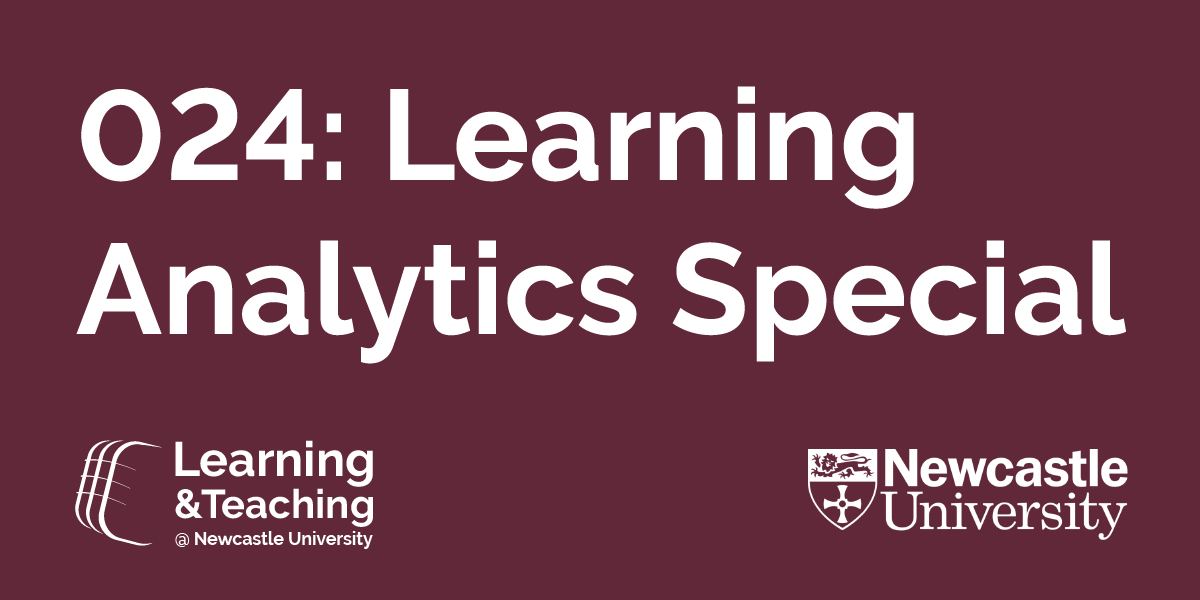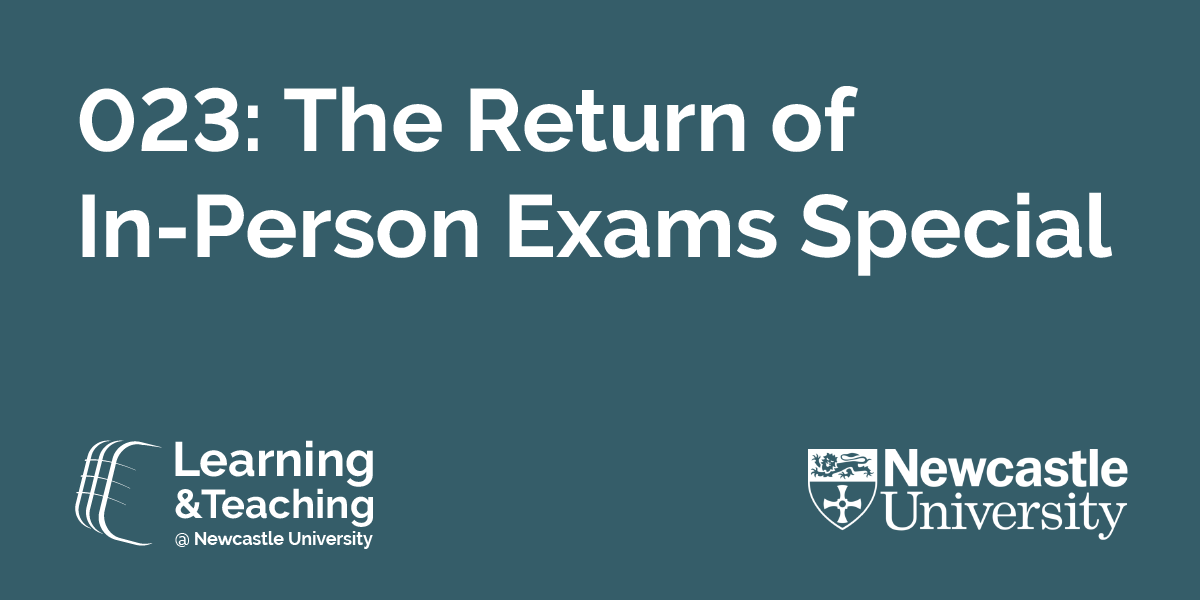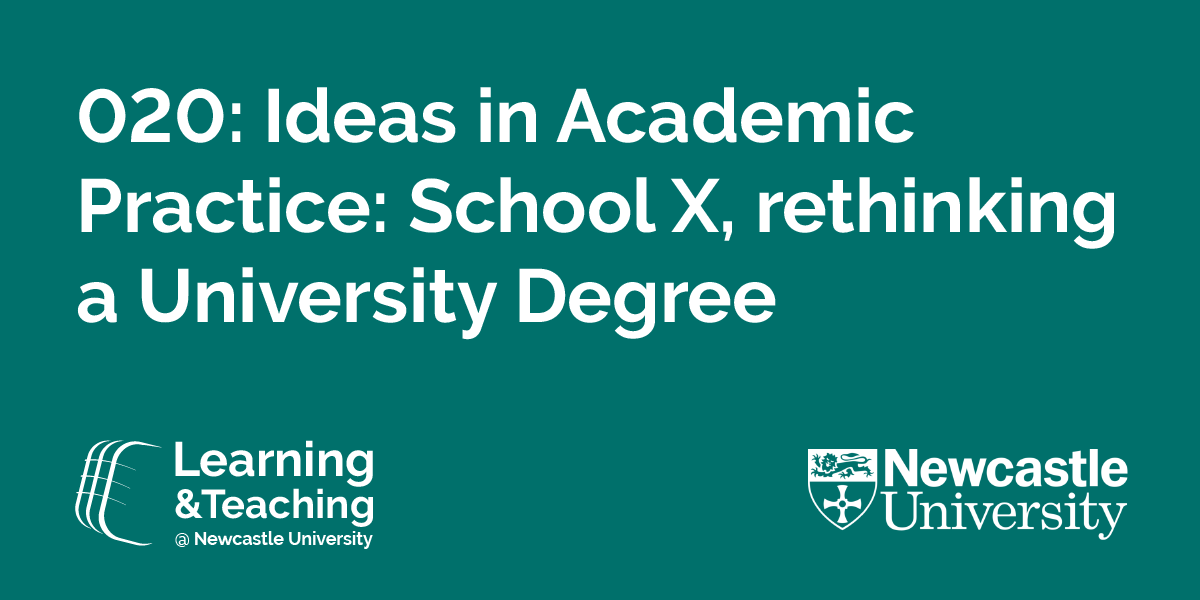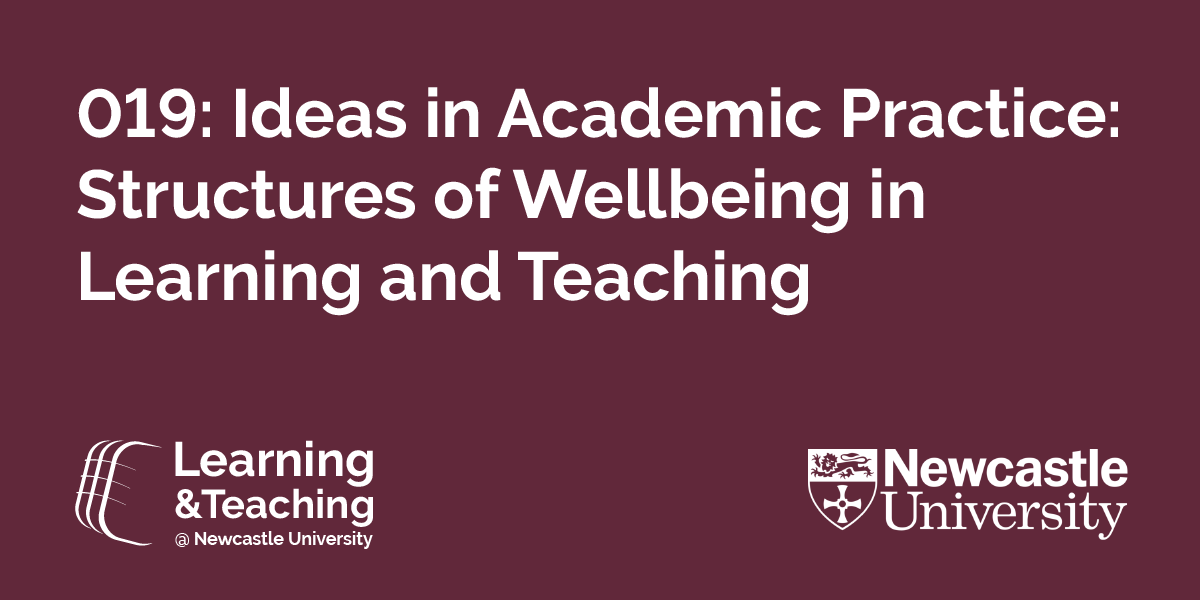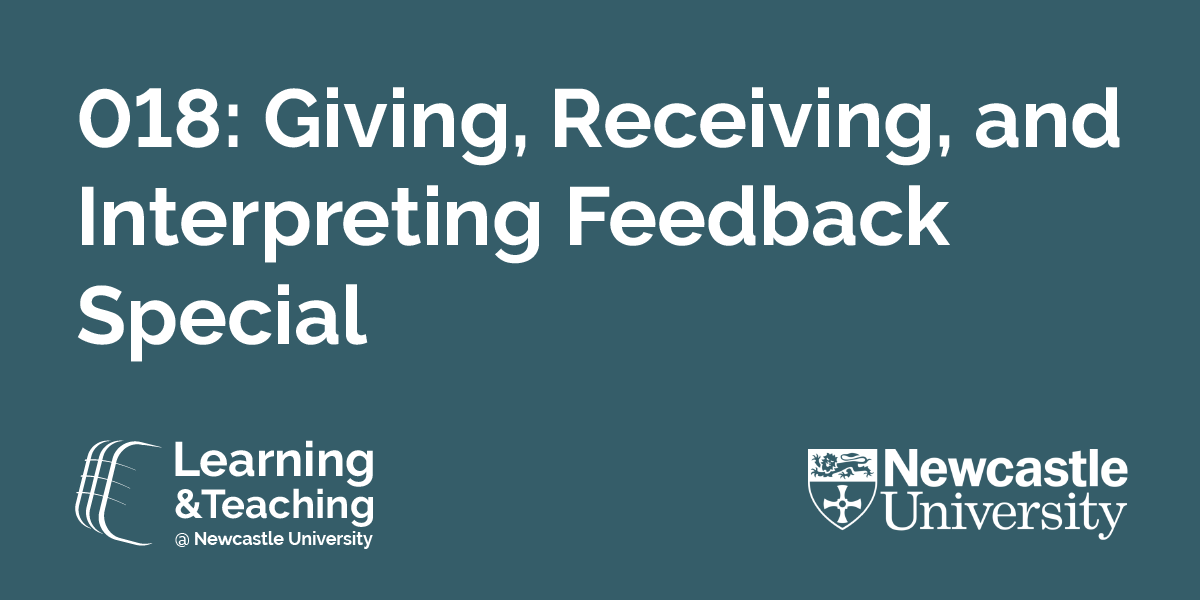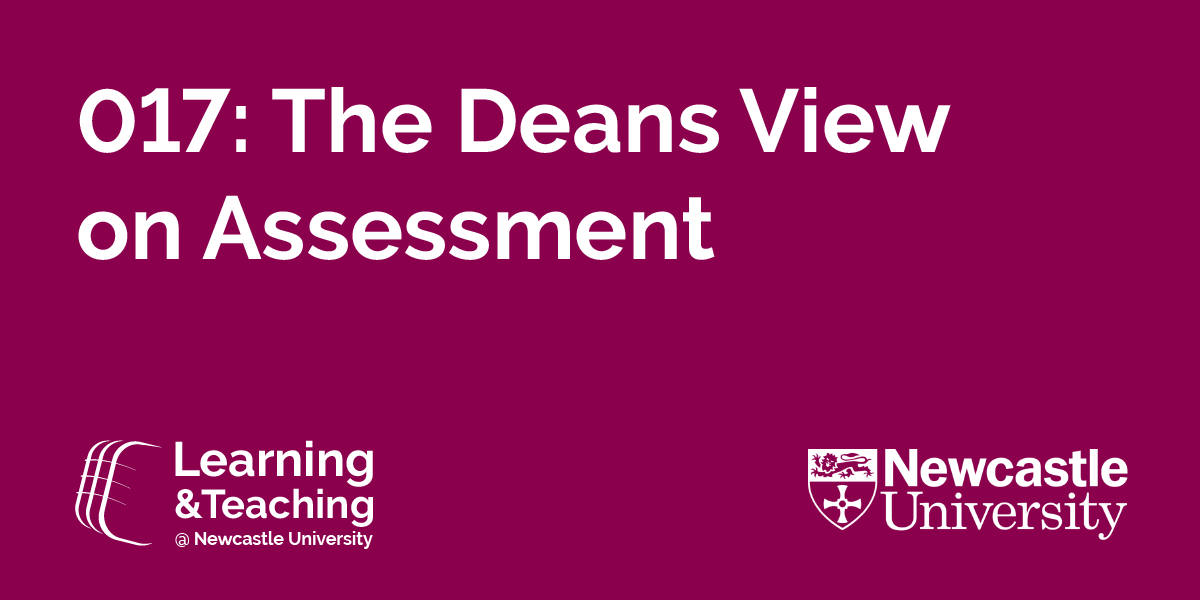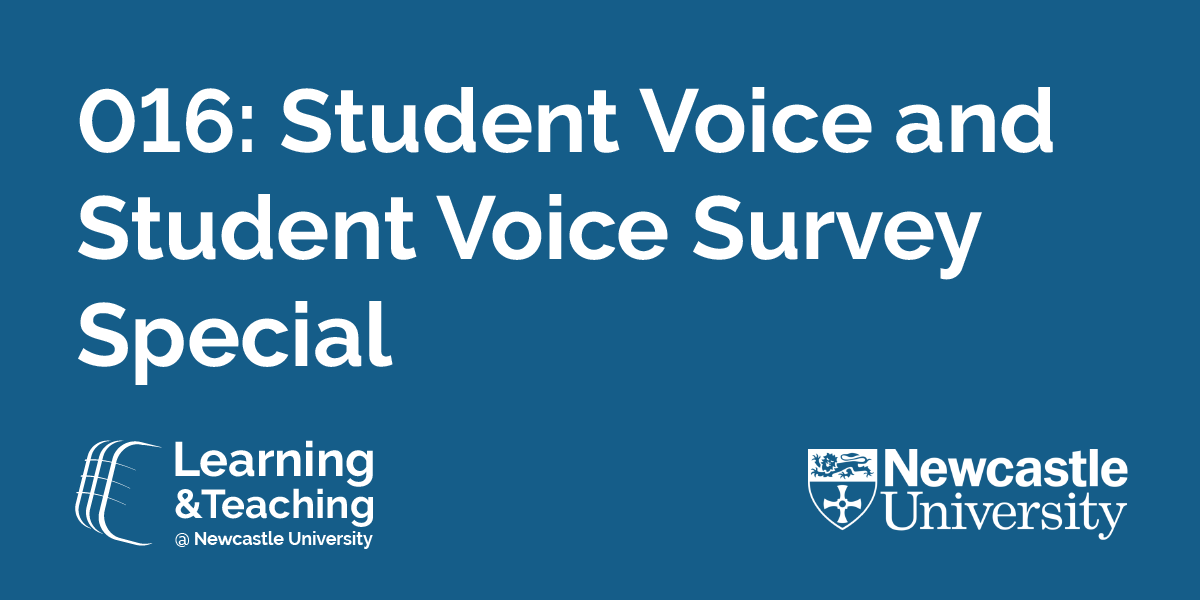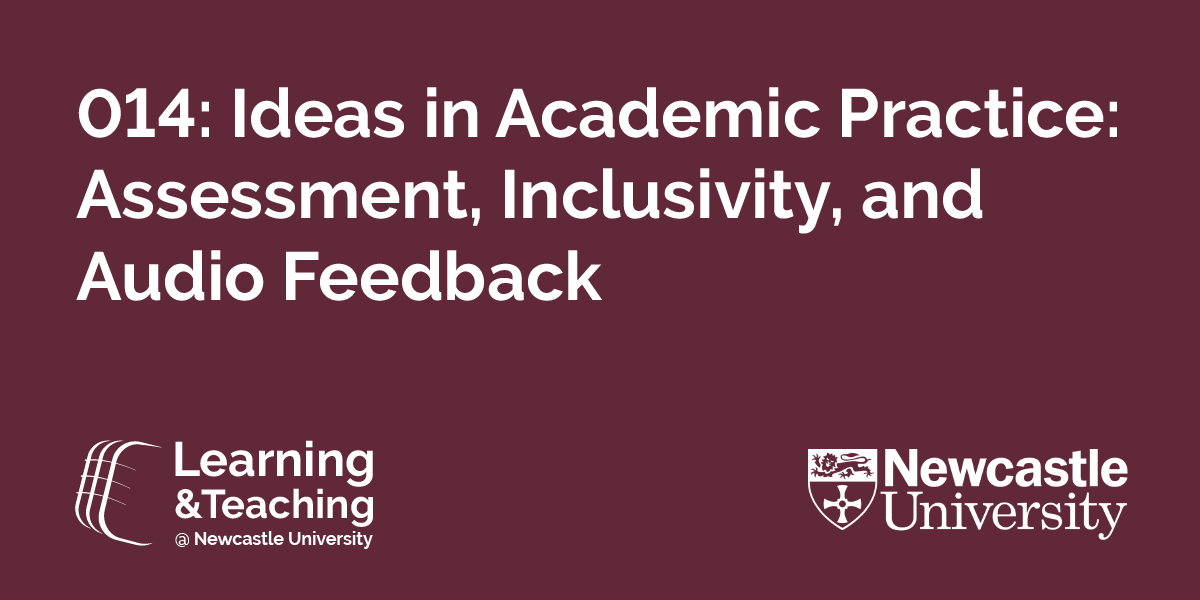Podcast: Play in new window | Download
Listen and Subscribe Apple Podcasts | Spotify |
Hello and welcome to episode fourteen of the Learning & Teaching @ Newcastle University podcast.
Transcript available.
In this episode Dr Paul Fleet (Chair of the Academic Progress Board of Studies at Newcastle University), Sandy Alden (Manager of the Disability Team within our Student Health and Wellbeing Service at Newcastle University), and Dr Hilary Potter (Teaching Fellow in German with research interests in Cultural Memory and Educational Practice) talk about the importance of giving inclusive and meaningful feedback, linked to the value of using audio feedback from both student and staff perspectives.
This discussion recognises that the process of giving feedback is an over-arching, deeply important part of the student’s academic journey and yet it is one of the most problematised areas. One issue is that can be found in the process of delivering feedback is that something can be lost in translation between what was written on the feedback sheet by the assessor and what is read and understood by the student:
- Can using audio feedback help to solve this problem
- how long does it take to do
- what are its benefits to the student cohort as a whole?
This podcast is for anyone involved in higher education (staff and students) and makes reference to research-driven ideas and practice to support the community of scholars who are committed to delivering quality feedback.
It is part of a suite of podcasts developed from the meetings of the Academic Progress Board of Studies and for more information on the work and support of the Academic Progress Team please contact: mailto:apt.lts@newcastle.ac.uk or visit https://www.ncl.ac.uk/ltds/professional/
If you would like to get in touch or have an idea you would like to share. Please email ltds@ncl.ac.uk and use the title ‘Learning & Teaching @ Newcastle University Podcast idea’.
References:
Blessinger, P. (2016). Creating a culture of inclusion in higher education. Higher Education Tomorrow, Volume 4, Article 8
Carless, D. (2006) Differing perceptions in the feedback process. Studies in Higher Education 31 (2), 219–233
CAST: About Universal Design for Learning
Gibbs, G. and Simpson, C. (2004) Conditions under which assessment supports students’ learning. Learning and Teaching in Higher Education (1), 3–32
Hattie, J. and Timperley, H. (2007) The power of feedback. Review of Educational Research 77 (1), 81–112
Killingback, C. et al (2018). ‘It was all in your voice’ – Tertiary student perceptions of alternative feedback modes (audio, video, podcast, and screencast): a qualitative literature review C Killingback et al 2018.pdf (bournemouth.ac.uk)
Merry, S. and Orsmond, P. (2008) Students’ attitudes to and usage of academic feedback provided via audio files. Bioscience Journal 11 (3)
Lunt, T & Curran J (2010) ‘Are you listening please?’ The advantages of electronic audio feedback compared to written feedback, Assessment & Evaluation in Higher Education, 35:7, 759-769
Potter, H (2021) ‘Where Pedagogy and Disability Studies meet? Exploring the potential of audio feedback in COVID times.’ A Royal Holloway Case Study presented at the AULC Conference, University of Leeds on 21st March 2021.
Rhind, S.M., Pettigrew, G.W., Spiller, J. and Pearson, G.T. (2013) Experiences with audio feedback in a veterinary curriculum. Journal of Veterinary Medical Education 40 (1), 12–18
Voelkel, S & Mello, L.V. (2015) Audio Feedback -Better Feedback? Bioscience Education, 22 (1), 16-30
Links from the Episode
Universal Design for Learning – Supporting students with specific needs
Recording Audio – Learning and Teaching website
Turnitin Page from the Learning and Teaching website
Canvas Orientation Course – Online Marking
Using audio feedback in Turnitin Case Study with Dr Jonathan Pugh from the School of Geography, Politics and Sociology
Speech Marking Case Study with Michael Jin from the School of Modern Languages
Turnitin Guidance on Audio Feedback
Canvas Guidance on providing feedback
Transcript available.

